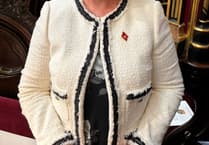A trust company has been ordered to pay costs over its ’misconceived’ injunction to stop a corporate services provider being sold to a rival.
Hillberry Trust Company Ltd had entered into a detailed written agreement in November 2015 to buy the business and assets of Douglas Trustees Ltd and Stuart Smalley and Co LLC.
But in July last year Hillberry owner Richard Steele heard the business, subject to the 2015 agreement, was being sold to Crowe Isle of Man.
Mr Steele applied for an interim injunction designed to prevent the sale to its rival.
But Hillberry withdrew its application in October last year.
In fact the sale of the business and assets of Douglas Trustees and Stuart Smalley to Crowe had been completed in March 2019.
In a judgment, Deemster Andrew Corlett described the application for the injunction as ’misconceived’ - and would have no real prospect of succeeding at trial.
He said Douglas Trustees and Stuart Smalley were ’not entirely absolved’ from responsibility for ’this regrettable’ litigation - as they ought to have been rather more open with Hillberry.
Crowe Isle of Man and Crowe Trust Isle of Man were entirely innocent ’outsiders’ who were brought into this case through no fault of their own.
Deemster Corlett ruled that as the ’main culprit’, Hillberry must pay their costs.
The court heard evidence from emails last year to Mr Steele that Douglas Trustees Ltd had no appetite to sell its business to Hillberry Trust.
There was no binding agreement in place and it had been some years since any direct discussions about a possible sale.
The November 2015 agreement was signed by Hillberry, Douglas Trustees, Stuart Smalley and P Duffy, an insolvency practitioner brought to manage Douglas Trustees following a large scale theft committed by a former employee.
But completion of the sale required the approval of the financial services regulator - and consent of Financial Services Authority was never given.
Deemster Corlett said there was clear evidence that the 2015 agreement had been superseded. And he said commercial reality must also have a bearing as the best part of four years had elapsed since the sale agreement.
He said: ’There is surely an implied term that the agreement would lapse by effluxion of time in accordance with the reasonable expectations of sensible businessmen.’
Deemster Corlett said he was satisfied that the claimant was not entitled to an interim injunction given the absence of any evidence that there was a binding agreement concerning the sale of the business.
He ordered Hillberry to pay Crowe’s costs and 80% of the costs of the other parties.




